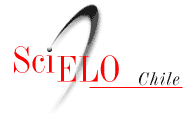Asymbiotic germination of Chloraea disoides Lindl. (Orchidaceae), a critically endangered orchid endemic to Chile
DOI:
https://doi.org/10.4067/S0717-66432022000100044Keywords:
terrestrial orchid, Chilean orchid species, orchid conservation, in vitro germination, culture mediaAbstract
Degradation of ecosystems is one of the main causes of the global decline in biodiversity. Many species are threatened with extinction and urgent actions are needed. Chloraea disoides is a critically endangered terrestrial orchid endemic to Chile. Our main goal was to evaluate the effect of three culture media in the asymbiotic germination of this species, aiming at its propagation in the long term. We tested the effect of Malmgren modified terrestrial orchid medium (MM), modified Murashige & Skoog medium (MS1/2), and agar-water (AW). After one week of incubation, seeds in all three media reached pre-germination stage. After four weeks, germination was achieved in MM and MS1/2. Protocorm stage was reached after 6 weeks only in MM. After 13-14 weeks, embryos reached the rhizoid stage in MM and MS1/2 and did not further develop until the end of the experiment (week 16). Overall, asymbiotic germination was statistically higher in MM and MS1/2 compared to AW, but very low nevertheless, compared to other Chilean Chloraea species, being lower than 8%. The laboratory propagation of C. disoides could be a key strategy to avoid its extinction in the short term but further studies are needed to fully understand its low germination capacity.
Downloads
Downloads
Published
How to Cite
Issue
Section
License
Copyright (c) 2022 Diyanira Castillo-Novales, Guillermo Pereira, Hertes Cid, Sergio Elórtegui, Cristian Atala

This work is licensed under a Creative Commons Attribution-NonCommercial 4.0 International License.
Authors who publish with this journal agree to the following terms:
- Authors retain copyright and grant the journal right of first publication.
- The articles in this journal are published under Creative Commons Attribution-NonCommercial 4.0 International License that allows others to share the work with an acknowledgement of the work's authorship and initial publication in this journal.
- Authors are permitted and encouraged to post their work online (e.g., in institutional repositories, on their website or ResearchGate) prior to and during the submission process, as it can lead to productive exchanges, as well as earlier and greater citation of published work (SeeThe Effect of Open Access).













